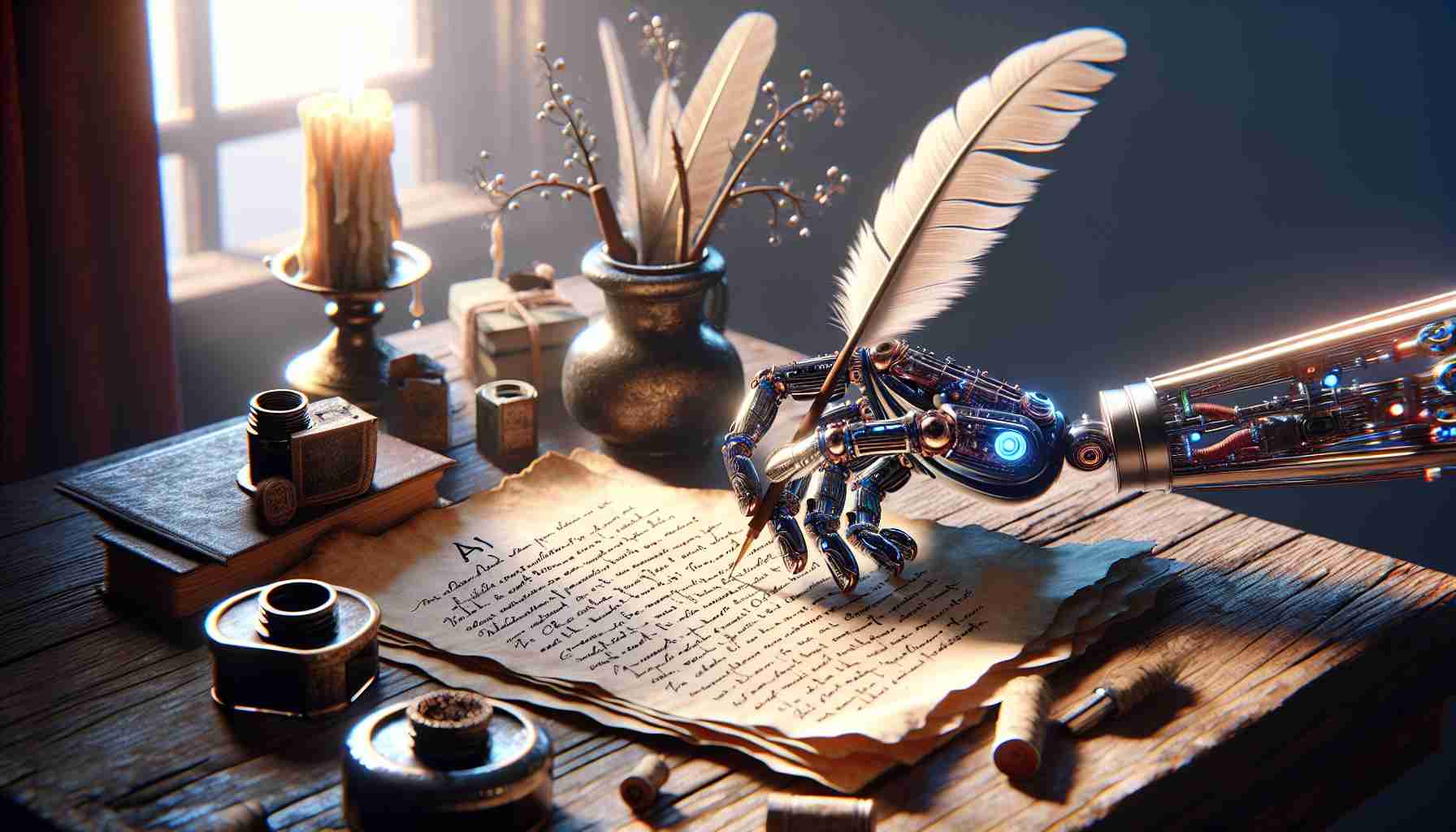The boundaries of poetry are shifting. As new technologies emerge, even seasoned poets may find themselves challenged by AI-generated verses that captivate audiences in unexpected ways.
A recent study revealed that ordinary readers struggle to distinguish between the works of renowned poets and those crafted by artificial intelligence. In fact, poetry created by AI was favored by participants over traditional human compositions, at least until the writers’ true identities were disclosed.
The experiment involved AI mimicking the styles of ten iconic poets, including Sylvia Plath and William Shakespeare. Participants rated their confidence in guessing the origins of various poems, revealing a surprising trend—AI poetry often scored higher in terms of creativity, emotional depth, and overall quality.
This phenomenon sheds light on a broader issue: many readers are not fully engaged with poetry and seek more accessible interpretations. Readers tend to gravitate toward works that are easily digestible and relatable. The challenge of appreciating complex poetry may lead audiences to prefer AI compositions, which often simplify themes and emotions.
Nonetheless, true poetry invites a deeper exploration of meaning, often unfolding unique insights that resonate with human experiences. Scholars and educators emphasize the importance of guiding readers to navigate these intricate layers, allowing them to appreciate the art in its entirety.
As AI continues to create, the future of poetry could reveal a landscape where human emotion and machine intelligence coexist, provoking thought and reflection on what defines the essence of poetic expression.
The Rise of AI in Poetry: A New Era of Literary Expression
The Shifting Landscape of Poetry
The world of poetry is undergoing a profound transformation, driven largely by advancements in artificial intelligence (AI). As AI technologies evolve, they not only challenge traditional poetic forms but also redefine how poetry is created, interpreted, and appreciated.
Understanding AI-Generated Poetry
Recent investigations into the impact of AI on poetry reveal a stunning trend: many readers struggle to differentiate between works penned by human poets and those generated by AI systems. A compelling study found that AI-generated poetry often resonates more with audiences than traditional compositions, particularly when readers are unaware of the poems’ origins. This surprising preference raises significant questions about creativity and the essence of poetic expression.
The Experiment and Its Revelations
In one notable experiment, AI systems were tasked with emulating the styles of ten historic poets, such as Sylvia Plath and William Shakespeare. Participants rated various poems based on creativity, emotional depth, and quality. Astonishingly, AI-generated poems frequently outperformed human compositions in these categories—until the participants learned the true authorship. This outcome highlights the intricate dynamics between perception, authorship, and poetic value.
Accessibility and Reader Engagement
A significant insight from this research is the accessibility of AI poetry. Many readers, particularly those who may find traditional poetry daunting, seem to prefer the more straightforward and relatable themes often presented in AI-generated verses. This raises critical questions about the barriers to poetic appreciation and indicates a pressing need for strategies that engage readers with complex poetry.
The Role of Educators and Scholars
Scholars and educators play a vital role in bridging the gap between AI poetry and traditional works. They emphasize the importance of teaching readers how to navigate the multifaceted layers of poetic meaning. This guidance enables audiences to delve deeper into the emotional and intellectual richness that true poetry provides, fostering a more profound connection to the art form.
The Future of Poetry: Human and AI Collaboration
As AI technology continues to develop, we might anticipate a future where human emotions and machine intelligence coexist harmoniously within poetry. This collaboration could serve as a catalyst for new poetic forms, encouraging both AI and human poets to push the boundaries of creativity and expression. The dialogue between human and AI-generated poetry poses provocative questions about authenticity, artistic intent, and the very nature of creativity itself.
Innovations in Poetry
The integration of AI in poetry is not just a passing trend; it reflects larger technological innovations. Tools that facilitate AI-assisted writing are becoming more sophisticated, enabling poets to experiment with style and content like never before. These innovations can empower both established poets and new voices, sparking discussions about the validity and value of poetry in the digital age.
Pros and Cons of AI Poetry
Pros:
– Increased Accessibility: AI poetry can simplify complex themes, making poetry more approachable for new readers.
– Innovation in Style: AI can help generate novel ideas and forms, expanding the poetic landscape.
– Engagement: AI-generated poetry may attract a broader audience, encouraging more people to explore the genre.
Cons:
– Authenticity Concerns: The reliance on AI raises questions about the authenticity of poetic expression.
– Loss of Human Touch: While AI can replicate emotions, it may lack the genuine experience that human poets convey.
– Economic Impact: As AI takes on more creative roles, the future of human poets raises concerns about job sustainability in the arts.
Conclusion
The intersection of AI and poetry invites both excitement and contemplation. As the boundaries of poetic expression continue to blur, the literary community must actively engage with this evolution, exploring the implications for creativity, audience engagement, and the very definition of poetry. The future promises an intriguing dialogue between human experiences and AI ingenuity, pushing us to rethink how we perceive and celebrate the art of verse.
For more on the evolving world of poetry, visit Poets.org for resources and insights.
